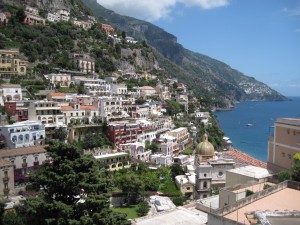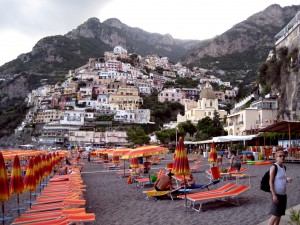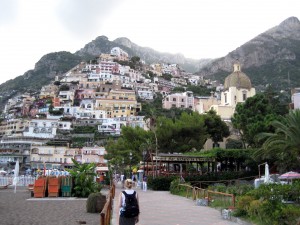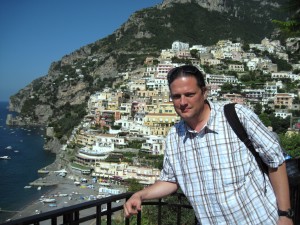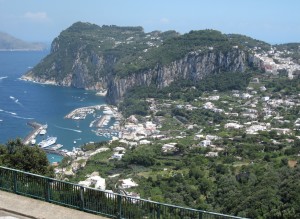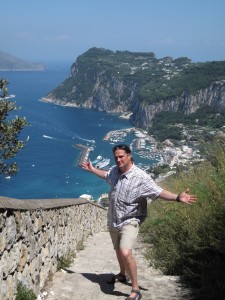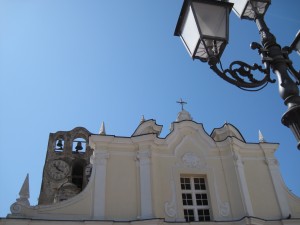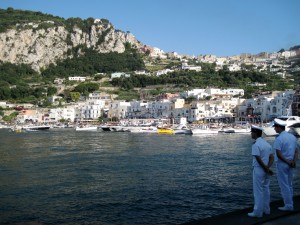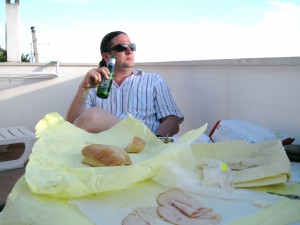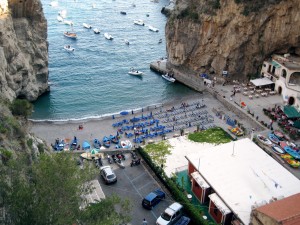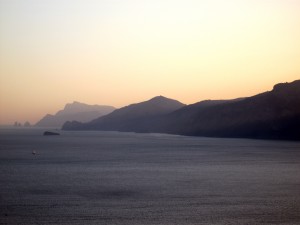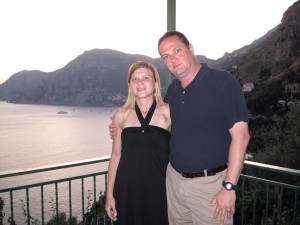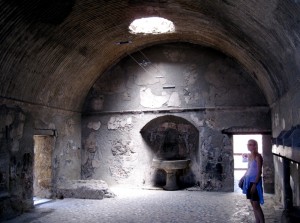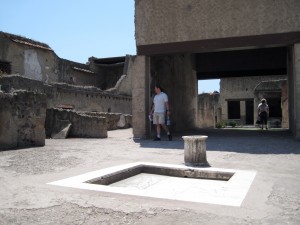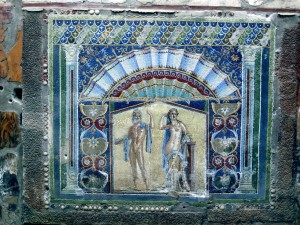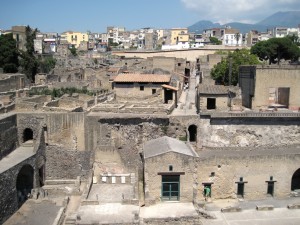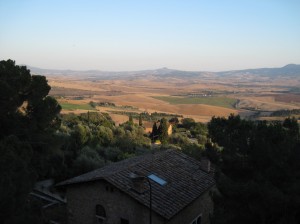The Amalfi Coast left us wanting more. From tiny towns stitched into the steep, rocky hillsides that plunged into the blue sea, to the island of Capri erupting from the water like a dagger toward the sky, to roads hugging the mountains curving around crevasses and dropping into terraces of green, we took away indelible scenes that we will remember.
We spent our first full day here looking around Positano. We had to take the bus over from where we were staying, up on a hill in Priano (the next town over), and we strolled the V-shaped Positano, taking it all in. Unless you are on the main road, everything along the Amalfi Coast is vertical, which means a lot of walking up and down, moving from stairs to moderate hills, and then back to stairs again, with every step down meaning another step up. You begin to quickly estimate the exhaustion level of every destination as soon as you spy it. On the good side, there is an incredible view waiting for you in almost every place you would stop to catch your breath.
The next day, we headed to Positano early to catch the ferry to Capri. The ferry ride over was calm along the coast, but as soon as you rounded the corner to the Bay of Naples, the water become very choppy, even with almost no wind and clear skies. Once in the harbor, we took the funiculare up to Capri Town and found a supermarket. Gathering enough for a picnic lunch, we sauntered up the hill, looking for a shady place to eat, one with a view. Two exhausting hours later, we found ourselves above the town, looking down on the harbor and the distant mainland. We should have take the bus, or at least brought a map with us, but the view was stunning as we ate on the stairs in the shadow of a mountain, under the gaze of Mary, built into a grotto near the location of a late-1800s sighting. We wandered around Anacapri for a couple of hours and then took the bus back down to Capri and then walked down the hill to the harbor for the trip back to Positano.
Our 12th anniversary was the following day, so we took it easy. We explored a beach in Priano and ate dinner in a very nice place, located just down the hill from our hotel (Casa Columba).
On the drive to Tuscany, we made a stop south of Naples to check out Herculanium, a Roman town buried in scalding mud when Vesuvius exploded in 79 AD. Herculanium is more preserved than the more famous Pompeii, so there is more to see. It is also a smaller site, something you can see in a couple of hours, which is all the time we had to spend.
Many of the frescos were still visible. Some of them looked touched up, but others had to be original to the period. Perhaps most amazing was the charred 2000 year old wood, visible throughout the town, like in old staircases and in beams stuck in walls. Some of these ancient charred timbers were still holding up doorways. They let you wander all over the site, pretty much, and you can get amazing close to some very old things.
We made it to our Tuscan farmhouse, on a hill several kilometers from Montepulciano, before sunset and then headed to a nearby town for dinner. We are the only guests here, and it feels like we have a manor, surrounded by vineyards and gleaming towns on the rims of hills across the surrounding valleys, all to ourselves. I hope our fortune holds, as we head into surrounding country around to explore and discover.
See all of our photos of the Amalfi Coast, Capri, and Herculanium
